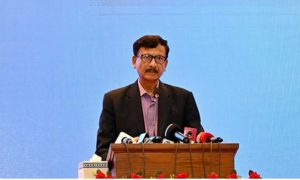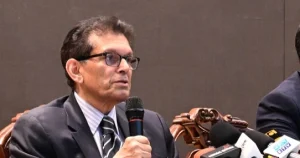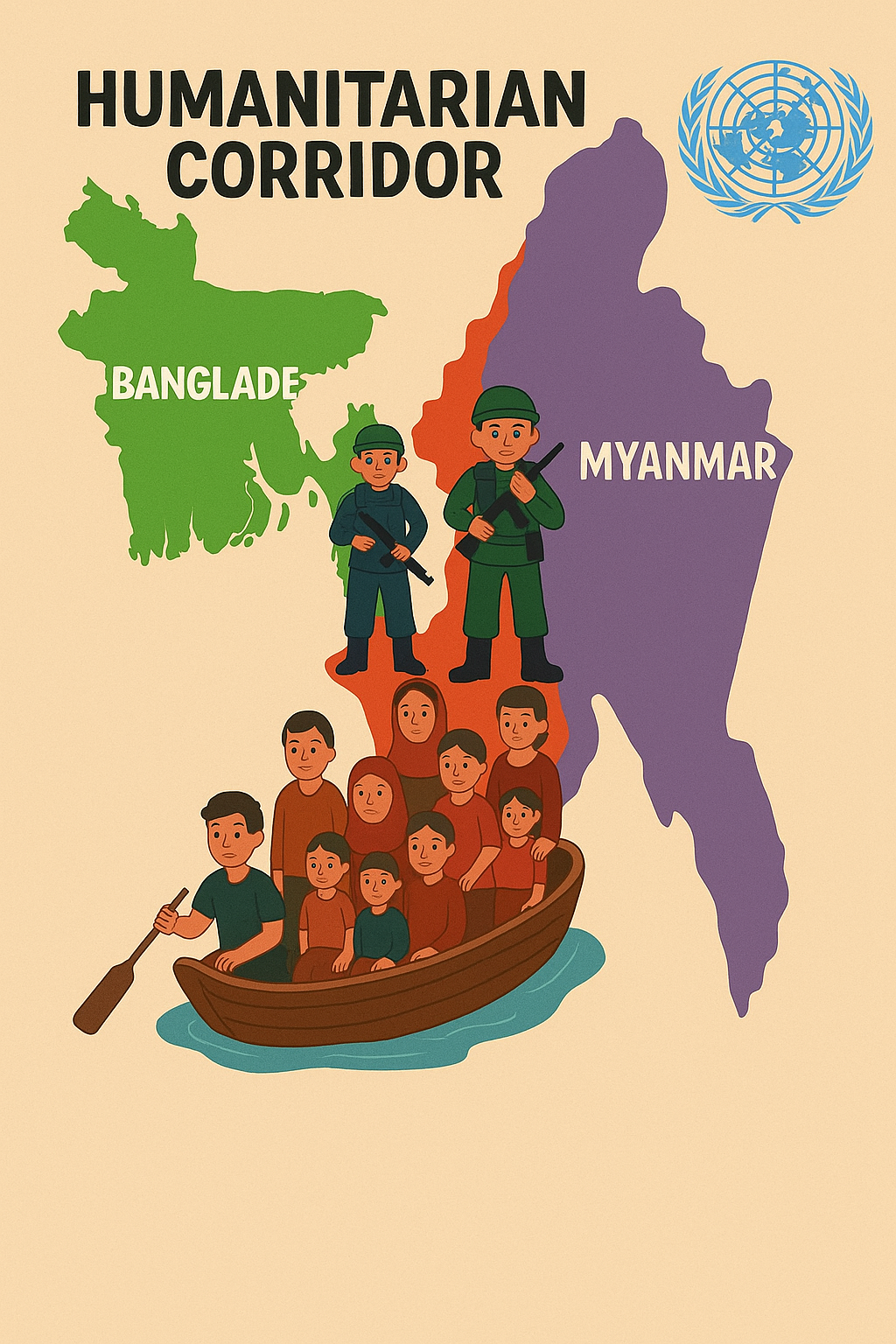Top-level of Bangladesh’s security forces are concerned over the United Nations’ proposed “humanitarian corridor” to deliver aid to civilians in conflict-ridden Rakhine State of Myanmar.
Despite the government’s interest and policy-level in principle agreement for the corridor, along with international momentum behind the proposal, the armed forces have taken a clear and unified stance against it.
According to military leadership, while the corridor appears to have humanitarian intent, it could ultimately trigger a “proxy war” in the region.
Senior military officials fear that the long-term presence of third parties at the border could severely disrupt Bangladesh’s geopolitical balance.
In multiple inter-agency meetings, security officials unanimously warned that the corridor could become a cover for covert operations by foreign intelligence and special forces.
At a recent command conference chaired by Army Chief General Waker-uz-Zaman, several General Officers Commanding (GOCs) reportedly labelled the corridor a direct risk of proxy conflict, sources concerned said.
The geopolitical rivalry surrounding the corridor—particularly among India, China, and Western powers—was flagged as a potential source of new instability in the Chittagong Hill Tracts region, according to them.
The issue is likely to be raised during the Army Chief’s “Officers Address” on Tuesday. Officers from across the country are expected to join the meeting. The main venue is Senaprangon while officers from outside Dhaka will join virtually.

Last month, Foreign Affairs Adviser Md Touhid Hossain and National Security Adviser Khalilur Rahman publicly stated the government’s “policy-level consent” to the UN’s proposal, describing the corridor as a route for delivering aid to vulnerable populations, including Rohingya refugees.
Earlier, UN Secretary-General António Guterres proposed the creation of the corridor during his visit to Cox’s Bazar, citing urgent humanitarian needs in war-torn Rakhine.
However, following the interim government’s support for the proposal, several political parties and analysts voiced strong criticism. The opposition BNP and others described it as an infringement on Bangladesh’s sovereignty.

Security analysts have also raised doubts about the corridor’s true purpose.
Major General (retd) Dr. Md. Sarwar Hossain told Times of Bangladesh that a corridor between Bangladesh and Myanmar could pose significant security risks.
“In those regions, the Arakan Army is actively fighting against the Myanmar military. If the Myanmar government sees the corridor benefiting the Arakan Army strategically, it is unrealistic to expect them to remain silent,” he said.
He added that the corridor could further complicate the conflict and may become a long-term security challenge for Bangladesh.
Western diplomatic missions in Dhaka have also briefed their governments on the military’s reservations, sources concerned said.
According to their assessments, Bangladesh’s military leadership views the humanitarian corridor as a geopolitical outpost that could jeopardise the country’s future strategic balance.
China, too, has informally reiterated its support for Myanmar’s territorial integrity, opposing foreign interference in what it considers an internal matter.
The UN’s formal proposal for a humanitarian corridor in Rakhine is based on the need to protect human rights and deliver essential aid. If implemented, it would provide safe passage for civilians trapped in the conflict zone, the UN claimed.

The UN argues that thousands of Rohingya, Rakhine Buddhists, and other ethnic minorities in Rakhine are facing displacement, insecurity, and food shortages. The corridor would ensure their safe relocation and access to relief.
UN agencies currently have limited access to the region. A dedicated corridor would facilitate the delivery of food, water, medicine, and medical assistance, they said.
Under international humanitarian law, the UN characterises the corridor as a neutral and non-military initiative governed by international treaties.
The UN maintains that the proposal aims to reduce international pressure—especially on Bangladesh—by delivering aid directly within Myanmar.
The UN Secretary-General emphasised the need for unimpeded humanitarian access to Rakhine, citing the risk of famine, wounded civilians, and the limited presence of international aid organisations.
While the UN labels the corridor a “life-saving mechanism,” many states remain sceptical about its strategic implications—Bangladesh’s security establishment among them.


